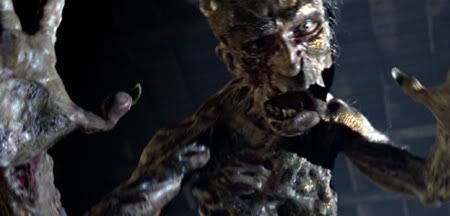The story explores the idea of the sins, or pathologies, of the father, manifesting themselves in the son. Grendel seems to be a manifestation of the id, of unconscious terror and desire and rage. He is a grotesque monster, but he is also (implicitly) the son of the king.
While the king and Beowulf value the preservation of community and family, Grendel seeks destruction. If the story is to be read as an expression of cultural values, it is perhaps an exploration of the dual drives for community (as symbolized by the mead hall) and destruction (as symbolized by Grendel). This creates a schitzophrenic culture. This is also suggested by the competing values of the "pagan" warrior culture of the Danes, and the newer Christian culture being brought from Rome.
Also, the mother plays a significant role--Grendel's mother. It is implied that both King Hrothgar and his successor Beowulf had secret sexual relations with Grendel's mother, a water demon who perhaps represents their actual mothers. The result of the secret sexual union with this mother figure produces monstrous offspring--Grendel and (later) the dragon. As Freud has suggested, the incest taboo creates neuroses in the heroes, who must slay the physical manifestations of their own forbidden unconsious desires before their house can be safe.
The absence of father figures is also perhaps significant, especially in patrilineal culture in which one's standing in the community is determined by one's father. Characters call themselves Beowulf, son of Hrethel, for example. I'm not sure what this means, but this text seems rich with psychoanalytic meanings. I tend to agree with Stanley Fish, that the author's intentions are not all that matters in literary criticism, based on the fact that psychoanalysis would not be invented for another thousand years.

Crispin Glover (my favorite actor) as Grendel.
